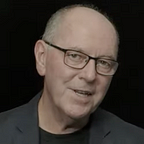A tantalizing place to experiment on people with zero accountability
Viktor Frankl survived the Holocaust. From his perspective, there was one reason why: He was focused on maintaining a sense of purpose.
As he wrote in his vital memoir Man’s Search for Meaning, those in the concentration camps who lost a sense of hope quickly decayed, while those who could envisage a future beyond their circumstances were able to be far more resilient.
In his quest to choose his own way amid the suffering, Frankl referred back to Friedrich Nietzsche, who said,
“He who has a ‘why’ to live for can bear almost any ‘how.’”
Without a specific future to strive for, we can’t grow. I have seen what happens when people commit to a bigger future. They’re able to convert their experiences — even painful ones — into learning, growth, and change.
Rather than living within narrow confines, they begin embracing uncertainty. Their past stops predicting their personality and behavior, and instead, their future becomes a guiding light.
Mark Twain once remarked, “comparison is the death of joy” and far worse, it’s also the birth of misery.
Let me be clear: No matter what confines you’re living within right now, you can achieve personal growth in your life. The heart of Stoic philosophy supports my claim that everyone’s full potential is achievable.
A Stoic philosophy one-minute introduction; You can be free, happy, and, serene, no matter what else is happening around you, if you understand this basic truth: some things in life are under your control, and others are not.
We can all learn a great deal about self-management from the Stoics.
Here, I’ll lay out the 9 key skills you should commit to developing in order to achieve the future you dream of. This is more relevant for young people, given they are in effect our collective future.
1) Define your future self
Only through imagining a future self with improved skills may we be able to motivate, plan, and execute the honing of skills through deliberate practice.
— Dr. Thomas Suddendorf, Dr. Melissa Brinums, and Dr. Kana Imuta
When many people describe themselves, they use phrases like “I’m an introvert” or “I’m not good with people” or “I’m bad at networking.” But the worst thing you can do for your future potential is to be definitive about who you are. Your current self is temporary and should be held loosely. What’s far more important is your future self.
I’ve often heard that the number-one regret people have on their deathbed is that they didn’t have the courage to be who they wanted to be, and instead, used their lives to try to live up to the expectations of those around them. To avoid that regret, the first step is to define your future self.
Ask yourself these questions:
Who do you really want to be?
What circumstances do you want?
What attributes and characteristics do you wish to embody?
What relationships do you want to have?
What do you want a typical day to look like?
What do you want to be focused on?
What do you want to stand for?
It is impossible to live intentionally without a clear future self in mind. You need to see yourself as the person who has already achieved your goal. This doesn’t mean you need to pretend to be that person today, but it does mean that you are consistently taking advice from that person and making decisions based on their circumstances instead of your current ones.
